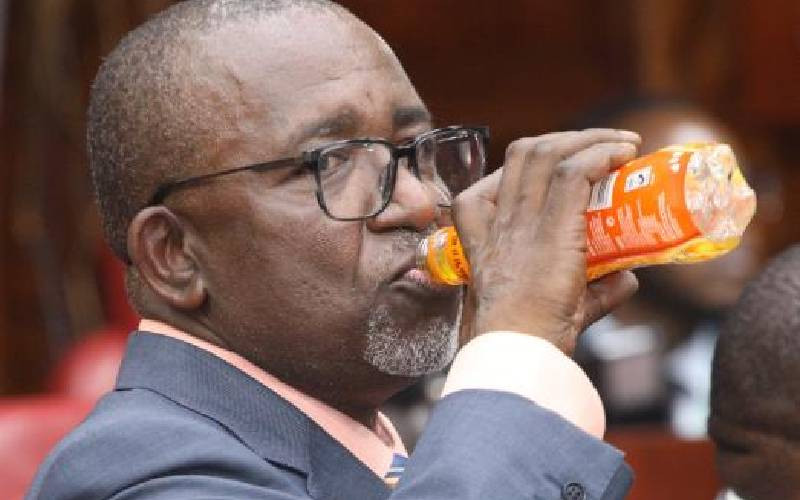NAIROBI: Members of Parliament continue to be in the public limelight for all the wrong reasons.
Evidently from recent events, our legislators would rather do anything else, but what they were elected to do. The primary mandate of a legislator is to represent the interests of his constituents in Parliament and pass legislation that protects those interests.
Yet for some Members of Parliament, attending committees or appearing in Parliament is a drag.
The rate of absenteeism in Parliament is alarming, with some members coming under the microscope for evading the house and failing to attend more than four consecutive sittings against the house standing orders.
At least 46 of the legislators stand to be removed from their committees and to lose the allowances they often draw when the committees are in session.
Interestingly though, while the MPs fail to attend sessions without permission from the speaker or for valid reasons, they have been very prompt in claiming their allowances.
But given the divisions within the house and the shenanigans associated with parliamentarians, observance of the standing orders is not, for the MPs, a compelling need.
The Speaker would have enforced the Standing Orders long ago because absenteeism is not new to the Kenyan Parliament, but he is continually distracted. Today, he faces a censure motion brought to the house by one of the Members of Parliament who is under scrutiny for missing sittings.
In August last year, Justin Muturi, the Speaker, put absentee MPs on notice after it emerged that the legislators spent more time and the tax-payers money on foreign trips, ostensibly to learn one trade or another that would benefit their areas and constituents.
In reaction to this, Members of Parliament attempted to change the Standing Orders to allow them to be absent for as long as possible without attracting penalties or missing out on the perks.
Today, both houses of Parliament are sitting on Bills that have constitutional timelines because the legislators have no time to debate and pass motions.
They are too busy feathering their own nests. There have been instances where Bills and Motions have been deferred for lack of quorum, thus delaying House business. This is a clear betrayal of the confidence that Kenyans had in MPs as they queued long hours to elect them.
Neighbouring Uganda ejected two Members of Parliament from their seats in 2014 for persistent absenteeism. Most countries under the Commonwealth banner have stringent parliamentary rules that control the conduct of legislators.
In South Africa, for instance, a member who misses three consecutive sessions faces a fine of 1000 rands. Cases of rampant absenteeism in Tanzania are rare.
Mr Muturi must go beyond threatening Members of Parliament with serious consequences and implement house rules which all the elected members are conversant with.
Stay informed. Subscribe to our newsletter
Members of Parliament must go that extra mile to redeem the image of a house that is accused of all manner of indiscretions not normally associated with an august House.
Parliament has taken a beating lately and appears to be hopelessly incorrigible in the face of corruption, rape and sexual assault charges. It is not in doubt that Kenyan MPs are among the most paid in the world and must justify those perks.
The only way to earn their pay is to serve Kenyans with diligence, decorum and promptness.
 The Standard Group Plc is a
multi-media organization with investments in media platforms spanning newspaper
print operations, television, radio broadcasting, digital and online services. The
Standard Group is recognized as a leading multi-media house in Kenya with a key
influence in matters of national and international interest.
The Standard Group Plc is a
multi-media organization with investments in media platforms spanning newspaper
print operations, television, radio broadcasting, digital and online services. The
Standard Group is recognized as a leading multi-media house in Kenya with a key
influence in matters of national and international interest.
 The Standard Group Plc is a
multi-media organization with investments in media platforms spanning newspaper
print operations, television, radio broadcasting, digital and online services. The
Standard Group is recognized as a leading multi-media house in Kenya with a key
influence in matters of national and international interest.
The Standard Group Plc is a
multi-media organization with investments in media platforms spanning newspaper
print operations, television, radio broadcasting, digital and online services. The
Standard Group is recognized as a leading multi-media house in Kenya with a key
influence in matters of national and international interest.









